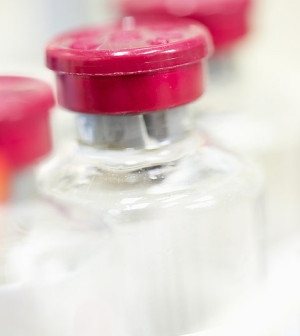- Gelatin vs. Collagen: Which is Best for Skin, Nails, and Joints?
- The Long-Term Effects of Daily Turmeric Supplements on Liver Health
- Could Your Grocery Store Meat Be Causing Recurring UTIs?
- Are You Making This Expensive Thermostat Error This Winter?
- Recognizing the Signs of Hypothyroidism
- 10 Strategies to Overcome Insomnia
- Could Artificial Sweeteners Be Aging the Brain Faster?
- Techniques for Soothing Your Nervous System
- Does the Water in Your House Smell Funny? Here’s Why
- Can a Daily Dose of Apple Cider Vinegar Actually Aid Weight Loss?
Fecal Transplant Treats Serious, Recurrent Intestinal Infection


Fecal transplants, using stool from a donor, have been successful at treating a serious gut infection, researchers report.
The infection is called Clostridium difficile. It causes diarrhea and severe abdominal pain and kills thousands of people worldwide each year, the authors of the small study explained. It’s believed that the infection overwhelms the good bacteria required to maintain a healthy intestine.
The fecal transplant method was developed to treat people with C. difficile infections, particularly those who have repeat infections. Fecal matter is collected from a donor, purified, mixed with a saline solution and transferred to the patient, usually by colonoscopy.
However, not much is known about the long-term stability of fecal transplants, the University of Minnesota researchers pointed out.
The study, published in the current issue of the journal Microbiome, included 14 people who had recurring C. difficile infections. Four received fecal transplants.
The healthy changes in the patients’ intestinal bacterial populations (“microbiome”) were sustained for up to 21 weeks after transplant, according to the report.
“Our study shows that there are both short- and long-term changes in the fecal microbiome following transplantation,” study author Michael Sadowsky, director of the university’s BioTechnology Institute, said in the news release.
“The diversity and types of microbes present fall into a cloud of possibilities represented by those of ‘normal fecal microbiota.’ While we have many similarities in fecal microbiota amongst humans in general, there are individual differences that make us all unique, but do not affect apparent gut functioning,” he explained.
The study could have implications for the regulation of fecal transplants in the United States, the authors suggested. The U.S. Food and Drug Administration considers fecal transplants to be a drug and has said standardization will be important.
However, the diversity of normal fecal bacteria in both donors and recipients suggests that this approach to regulation will not work for fecal transplants, the investigators said in the news release.
More information
The Fecal Transplant Foundation has more about fecal transplantation.
Source: HealthDay
Copyright © 2026 HealthDay. All rights reserved.










